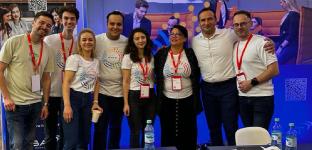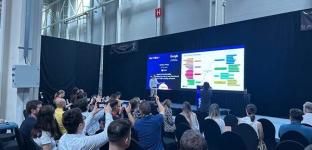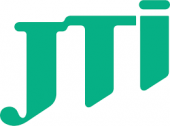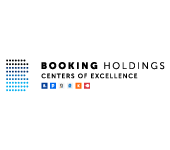Model scrisoare de intentie. Descarca modele pregatite de specialisti dn care merita sa te inspiri
What Does It Mean and What Does It Take to Be a Tech Support Staff Member at Veeam?
.png)
What does Veeam seek in a potential young employee?
The skills of a technical customer support engineer can be grouped into three areas: technical, linguistic, and communication skills. At Veeam, we're looking for a combination of all three skill areas in one person.
What does the process look like in practice?
We talk about the candidate's outlook on the IT business and specific skills in the technical interview. All our work is built around various technologies, including VMware and Hyper-V hypervisors, Nutanix AHV, Azure, AWS, Oracle, SAP HANA, and so on. Therefore, we do not expect any precise knowledge from our candidates (although it would be very welcome!), but we require candidates to have a grounding in system administration.
This is followed by a check of the candidate's level of proficiency in a foreign language, with English being the most popular (although we are on the lookout for candidates who know French, German, Spanish, Italian, Russian, etc.)
It is essential to understand that our engineers handle problems by themselves. This means that it is the sacred duty of proper engineers to respond to customer requests and immediately resolve issues, no matter how complex. We should clarify that by "customer," we mean an engineer like ours. It's just that something is now broken in the infrastructure, and the customer needs the help of a professional.
The final stage is so-called customer care. It means the ability to be polite and deal capably with any situation and respect people so that even the most demanding of customers has a big smile on their face when they put the phone down. People usually call because of a problem that needs to be resolved here and now. This is where your communication skills, the ability to remain polite, and your genuine desire to help the customer come to the fore.
What is the job all about?
The answer lies in work. Our customers are system administrators just like our engineers. They have a complex infrastructure, often massive and packed with top-end hardware and our support engineers are professionals who have our trust and the trust of other engineers around the world. And here's the first difference: they don't spend the entire day on the phone. Instead, they collect cases from the queue, disconnect from calls, and deal with them, because up to 80% of problems are resolved by first-line staff.
What follows after being accepted as a member of the team?
Each new member benefits from three months of intensive training courses, on-the-job with KPIs. Then, about halfway into the system, you gradually begin to work with cases. This means that about 30-40 closed cases are expected by the end of the training period, along with some evidence that the engineer can successfully apply the knowledge gained in practice.
How does coaching work at Veeam?
First, a mentor will be assigned, who will teach the required technical skills. These include hypervisors, networks, various operating systems, DBMS, storage systems, clouds, and much more. Then newcomers start learning about Veeam products. This is a separate layer of knowledge, which is highly valued in the labor market. As soon as the newcomer has learned to navigate this sea of information, they will receive their first real case. Or rather, they will personally choose it. It will probably be a simple one, and the mentor will carefully monitor the new engineer's work! This will be followed by simple calls to customers when something requires clarification, but sooner or later, the engineer will receive their first real call. At every stage of the training period, the mentor will observe, provide suggestions, and advise on how best to respond at the slightest hint of a misunderstanding.
What does the office look like?
Just like any athlete needs a comfortable gym with quality equipment, our engineers need an excellent laboratory in which to work. You cannot learn to work with state-of-the-art technologies without having direct access to them. Every engineer has their section in the lab to enjoy access to all the hardware and high-tech tools. Professional development doesn't stop after three months. Learning is a continuous process, so there are language courses, talks on new technologies, products, and everything else it takes to keep up with the fast-paced development of our industry. Over time, if the engineer wants to deepen their knowledge in a specific area of work, they will have the opportunity to join dedicated teams. For example, we have separate groups dealing with Linux, clouds, service providers, etc. In a word, there are plenty of opportunities for professional growth.
Why is this a job for the future?
As you can see, a technical support engineer is not the lowest link in the evolutionary chain of an IT specialist but an employee with an important and challenging job. After all, they are first and foremost an engineer. And as in any engineering profession, everything depends solely on the individual. Therefore, competent engineers will always be in demand, and their work should (and will) be well paid.

Alte articole din aceasta sectiune:
-
 Navigating the Future of Work: an interview with Marius Clapon, Head of IT Delivery @MassMutual Romania
Navigating the Future of Work: an interview with Marius Clapon, Head of IT Delivery @MassMutual Romania
- Discover InThePocket - New IT company to keep an eye on
- Discover Revolut - the TECH company to keep an eye on in 2024
- Centrul de tehnologie si operatiuni al LSEG (London Stock Exchange Group) ajunge la 1000 de angajati in Bucuresti
- Meet BAT Romania












![Manufacturing Trainee in Philip Morris Romania [on site, start date: august 2024] Manufacturing Trainee in Philip Morris Romania [on site, start date: august 2024]](https://www.hipo.ro/public/resources/imagini/logofirma/b4ae1d18520d4b8ce925d1b878c3c53d.jpg)




Raporteaza eroarea la